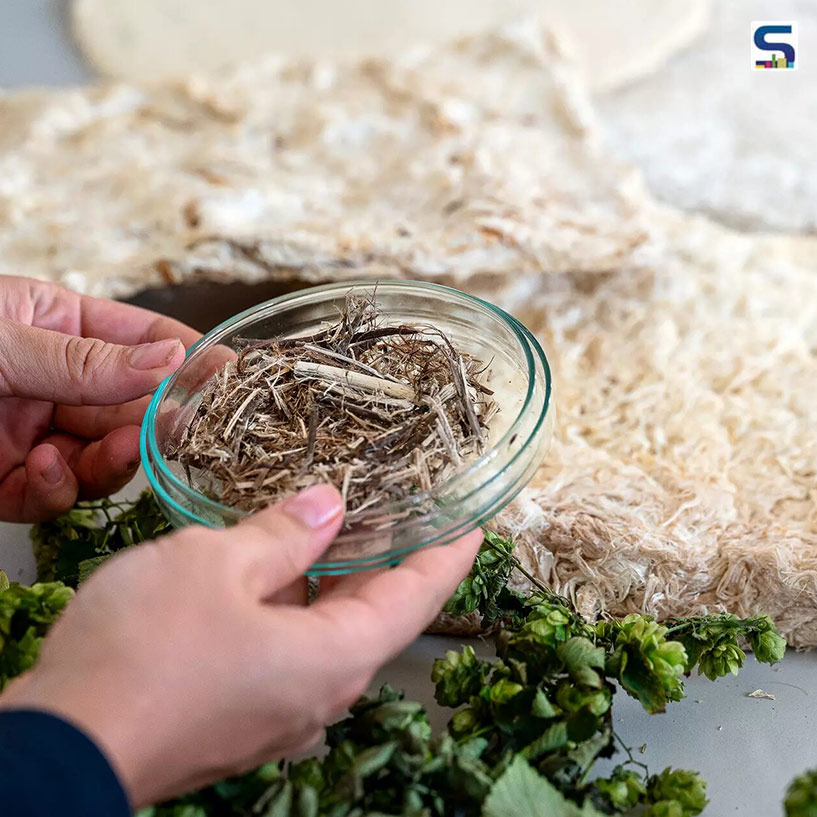
By conducting experiments on hops, a plant belonging to the same family as hemp, the HopfON team has effectively produced panels designed for use as acoustic insulation materials. These panels contribute to their goal of reducing resource use and CO2 emissions in construction. The material is eco-friendly and made from agricultural waste. You can find more details in the complete report on SURFACES REPORTER (SR).
The idea originated during a casual conversation between construction engineering student Thomas Rojas Sonderegger and architecture student Marlene Stechl while enjoying beer in their student residence. They were inspired by a talk about using banana fiber for construction materials.
The team explored using locally sourced materials for Bavaria and jokingly considered using hops. This led to research on the fibrous structure of hops, similar to hemp, and the potential use of waste material from hop cultivation.
Harnessing Hops for Advanced Building Materials
Hops belong to the same plant family as hemp, a material gaining increasing importance in construction. The initial stage of producing these building materials involves mechanically separating fibers from hop vines.
HopfON then utilizes further chemical processing to create panels serving as acoustic insulation materials. Recognizing that only a small portion of the hop harvest is allocated to beer production, Stechl and Sonderegger from the team proposed the innovative idea of utilizing waste from hop farmers.
Material Characteristics
The fibrous nature of the hop plant imparts tensile strength to the material, making it particularly well-suited for acoustic panels, insulation, and structural boards. Additionally, the woody cores of hops, known as shives, contribute extra compressive strength to the material.
Similar to hemp, hops also exhibit excellent heat insulation characteristics. To validate their chosen material, Marlene Stechl conducted flammability tests on the hop plant as part of her master's thesis and found no reasons for concern.
Material tests were conducted at the Bioregional Design Lab at TUM, and the team participated in the Urban Prototyping Lab and won the 2022 TUM IDEAward, securing 15,000 euros in start-up capital.
Logistical Challenges
The team faced logistical challenges during the hop harvest in Hallertau in 2023, learning about containers, trucking companies, and drying sheds. The founders received support from local farmers.
Recyclable Product
The focus is on offering a recyclable product without artificial additives, allowing the hop-based construction materials to be broken down into their original components for reconstitution as new products. This is the main USP of the product.
The planned market launch is set for 2024, starting with acoustic panels for soundproofing applications.
Photo Courtesy: Astrid Eckert / TUM